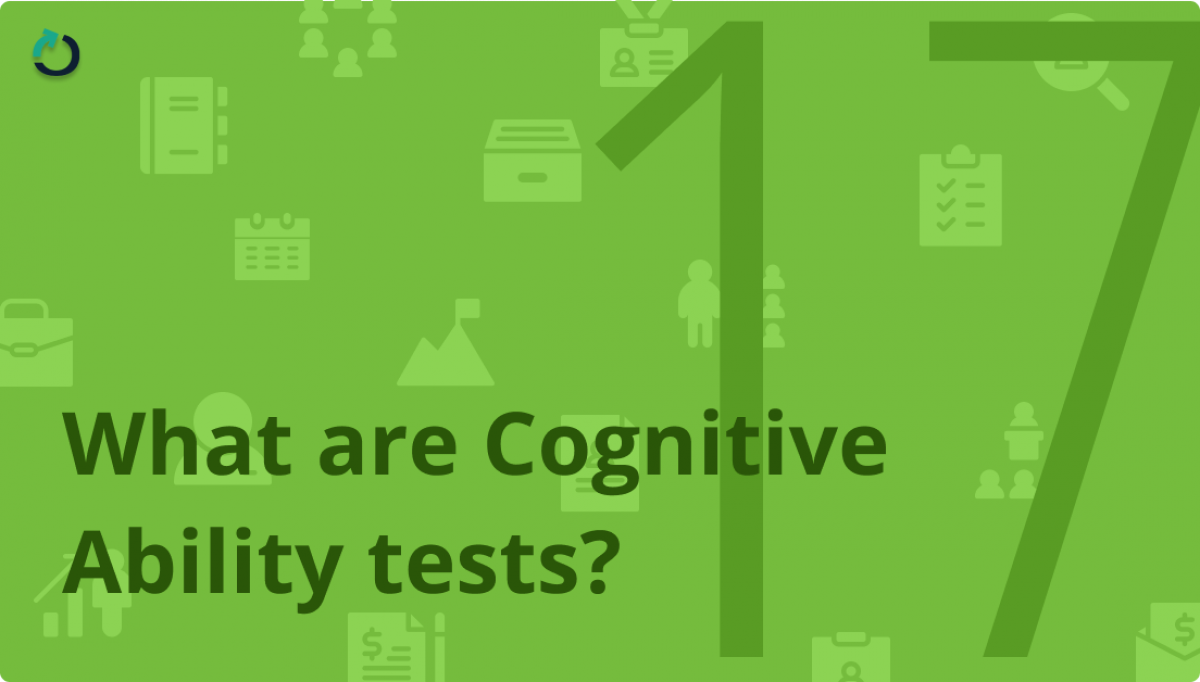Cognitive assessment for hiring
Cognitive ability tests have been among the most potent weapons in a recruiter's arsenal. And they have been so for the last 30-40 years.
Why? Because they are proven to predict higher job performance, retention, and even significant cost savings.
And why cognitive tests are so predictive? It is because they can answer questions like “Whether a candidate can visualize?”, “Can he learn fast?”, “Can he think abstractly?”, “Is he analytical?”, and more such questions?
Cognitive ability tests are designed to measure the mental abilities of the candidates. They do not show up anywhere else on the profile.
Recruiters try to assess the mental abilities of candidates through the interview process, but as covered in numerous earlier articles, assessing these abilities in candidates without bias through interviews is extremely difficult.
In this series of articles, we will cover "what are cognitive assessments?", "Why do you have to use them?", "the types of cognitive ability assessments", "How to use them?", and "how not to use them?"
What are cognitive tests?
In a general sense, cognitive tests measure a candidate’s cognitive skills. I guess that is a circular definition. But let me explain.
Cognitive skills are your mental abilities. They don’t measure what you know: they measure how you think. This is the crucial difference between cognitive and other forms of tests.
Cognitive skills are usually measured through a battery of short multiple-choice or numerical entry-type questions composed of simple math problems, logical puzzles, abstract puzzles, verbal puzzles, and more. Most of the tests in the market take 30 – 50 min to complete. At Merreo, we optimized the tests and broke them down into six categories such that each test takes no more than 8 – 15 min to complete.
Most of these questions in the cognitive ability tests are not difficult. But the time limit makes it a crunch situation. So the tests simulate a real work environment where they are expected to shine under pressure.
All this begs the question, are IQ tests and Cognitive tests the same?
The answer is complicated. The term IQ refers to the measurement of a person's general intelligence, and if taken broadly enough, cognitive ability testing is similar to IQ testing.
That said, IQ tests are not great for pre-hiring assessments. and cognitive ability assessments are. As I said, IQ measures the General Intelligence - if such a thing exists - whereas a cognitive ability test measures multiple intelligences separately.
We at merreo don’t subscribe to the general intelligence theories. Those theories suppose that one type of cognitive test results predicts the most other test type results. That implies that there is just one type of intelligence, and one type (abstract reasoning) of the test is valid enough.
But the more widely accepted and rigorously researched idea is the multiple intelligence theory. This theory proposes eight different abilities. Namely,
- Musical-rhythmic
- Visual-spatial
- Verbal-linguistic
- Logical-mathematical
- Bodily-kinesthetic
- Interpersonal
- Intrapersonal
- Naturalistic
For pre-hiring assessment purposes, all of these abilities are not relevant. And all cannot be measured through a pre-hiring test. Eg. The Bodily-Kinesthetic intelligence. But the different merreo cognitive ability tests are created to assess different types of intelligence.
Several cognitive tests are available in Merreo, and each has a specialty. Meaning, even though the cognitive tests are sector agnostic, one test might suit your hiring needs more than the other. We will get more into that later.
The Cognitive ability tests in Merreo are
- Mathematical Thinking
- Critical Thinking
- Spatial Visualization
- Abstract Reasoning
- Interpreting Data
- Numeracy
Let’s look into these tests in detail in further articles. We have role-specific test batteries that you can directly plug into your hiring system and expect top-notch results instantly. But it helps if you know a bit more about the cognitive tests.
The Cognitive test results in merreo are delivered as TruScore and percentiles.
TruScore is our proprietary raw score. You can set a baseline threshold using our cut-off feature. Percentiles, on the other hand, talk about the relative performance of the candidate. If the candidate has scored 96th percentile, it means that that test performance is better than 96 percent of all candidates in Merreo.
That’s it for this article. In the next one, we will discuss why you need cognitive assessments in your pre-hiring process. In the meanwhile, feel free to check out Merreo.





